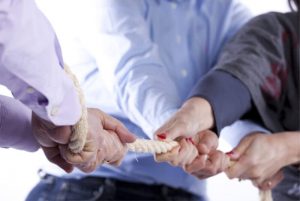
Full disclosure: Every thing I’ve written has had at least one comma or apostrophe out of place…
Maybe a letter or word omitted in haste when meeting a tight deadline. I’m not proud of the fact, but it goes with the territory. It’s not that I’m careless, or couldn’t care less as it were, but like many writers I “see” the finished product in my head. I’ve always known about this shortcoming and praise copy editors as unsung heroes who make us better while preserving the sanctity of the written word in our increasingly video-obsessed society.
Like the make up artists and camera operators are to the actor, editors and copy editors make us writers look good — or at least better. (Heck, I even married my copy editor years ago, and not surprisingly, my column and scripts haven’t read so messy since we split.) So in short, writers need copy editors and we should all strive to be grammatically correct when we speak and write. Copy editors value the writer’s creativity and are never condescending. That said,…
It’s the self-proclaimed social media grammar police with whom I take exception.
That’s because they’re not actual copy editors – but there is an assumption on their part that correcting the world is their duty. Common abbreviations get a pass as do the unfortunate typos and poorly chosen auto-corrects when sending texts. They find other errors annoying, infuriating, and maybe even relationship deal breakers like this article’s comic illustration. The errors somehow seem to negate the message. Just reread the first sentence of this paragraph if you’d like proof that I know the difference of when to use there, their, and they’re. It’s that often my fingers do not, so cut them a break, they’re just poor helpless digits who at times lose their way.
In social media, we’d all love to have flawless Facebook posts, Twitter feeds, blogs and emails, but that’s rare. More importantly, it’s really not the point. It’s called “sharing” for a reason. Don’t belittle the point that someone is trying to communicate their thoughts, emotions and opinions (unsolicited or otherwise) to you. And they should be able to express whatever they can as best as they can.
I’m one of a fortunate few who has made a career at essentially writing. Granting me the courage to do so was a college professor who sat me down after reading a few of my essays in her office that overlooked the Charles River.
“These are exceptional. Why aren’t you majoring in writing?,” she asked. I looked down, sheepishly.
“I’m a horrible speller and my grammar is atrocious.”
“Don’t worry about that for now. That will come,” she said. “You’re a writer.”
She was right for the most part. As I write this article, I still struggle with quotation and comma placement or when to use an em- or en-dash. But social media has breathed new life in the written word which before the Internet was all but extinct. We are all writers now. Imperfect as we are. But we all have a voice. So listen, don’t condemn your friends and your children. Otherwise it’s you who are guilty of poor etiquette.
Let’s applaud and promote good grammar, demand it in our books and articles, but be forgiving of it in our social media.
The enforcement of social media “netiquette” has gotten so out of hand that their is nothing I enjoy more then to occasionally use grammar ironically too help those who distract to easily to remember: focus on the thoughts and sentiments, as well as the words.
(238)
Report Post





